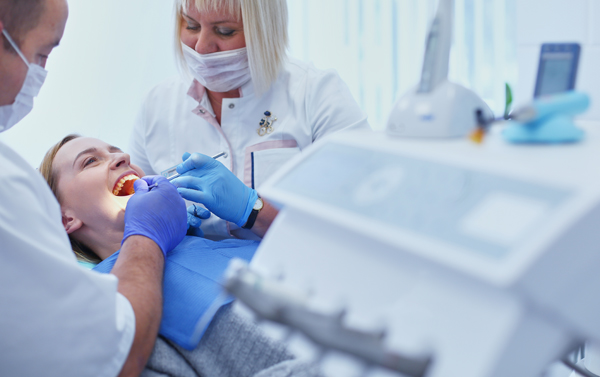How a Wisdom Tooth Extraction Is Done
is often necessary in order to promote good oral health. The procedure can be daunting to some; however, the result is a healthier oral cavity, thus ensuring better overall health.
Because wisdom tooth extraction is an involved procedure, it can be helpful to know what to expect beforehand. This allows for the opportunity to prepare appropriately, ask questions, and go over concerns.
The steps of a wisdom tooth extraction
Outlined below are the steps of a wisdom tooth extraction. Keep reading to find out more!
1. Anesthesia
Before a wisdom tooth extraction is performed, the dentist will apply anesthesia. Anesthesia is needed in order to promote numbing, reduce the ability to feel discomfort, and ease anxiety regarding the procedure. Anesthesia may be administered intravenously or via injection, depending on the severity of the extraction.
2. The removal
After anesthesia is applied, the dentist will remove any area of bone that may be blocking access to the wisdom tooth. For example, if the tooth is impacted in the jaw or behind other teeth, certain areas of hard tissue may have to be removed.
Once the wisdom tooth is accessible, the dentist will use a dental drill to divide it into sections. Dividing the wisdom tooth into sections allows for easier removal. Once divided, a tool called an extraction forceps is used to actually extract the tooth.
3. Disinfecting
After the tooth is removed, the area has to be cleaned out. Similar to a filling or crown, when the damaged parts are removed, the empty space in the tooth must be cleaned out. The same goes for wisdom tooth extraction. When the tooth is taken out, there is an empty space that will have to heal. In order to ensure proper healing, the area has to be disinfected so that bacteria do not grow and spread.
Disinfecting involves cleaning out the empty space with a water stream and gentle disinfectant solution. This part of the procedure does not take long at all; however, it is one of the most important steps.
4. Closing
The last part of a wisdom tooth extraction is closing, which involves stitching the open wound shut to prevent debris from entering. In some scenarios, the wound may be small enough that stitches are not necessary; however, that is rare. After stitches are placed, the dentist will place oral gauze to control bleeding and promote clotting. Gauze is often necessary even after the patient returns home, as bleeding usually lasts for a few hours. It is advised to change the gauze every hour or so to ensure cleanliness.
Prepare for a wisdom tooth extraction
When looking for more information on wisdom tooth extraction, it is best to consult directly with a dentist. The dentist can outline any patient-specific steps, which may differ slightly from those listed above. Additionally, preparation tips can be provided, which can quite helpful to review and consider beforehand. To find out more, reach out today!
Request an appointment here: https://www.dentistinridgewood.com or call Aston Dental at (201) 620-9996 for an appointment in our Ridgewood office.
Check out what others are saying about our dental services on Yelp: .
Related Posts
Wisdom tooth extraction is a procedure that few look forward to; however, it is often necessary in order to eliminate pain and crowding in the mouth. While many individuals are familiar with the procedure, there still may be some unknowns about the process and what to expect. Below is an overview of the wisdom tooth extraction…
You may be wondering if you need to get a tooth extraction, or you may be feeling apprehensive about it. Luckily, tooth extraction is a safe procedure. Often, it is imperative to remove the tooth as quickly as possible. However, as long as the damaged tooth is promptly removed, the adverse effects are mitigated. We…
Mouthwash, or mouth rinse, is commonly recommended by general dentists to add to an at-home oral hygiene routine. These rinses help eliminate harmful bacteria in the mouth that can cause decay, gum disease, and bad breath. However, some individuals have concerns that mouthwash can harm their oral and overall health.There are several types of mouthwash…
Over time, individuals who wear dentures may experience a need for denture repair. The mouth changes, and normal wear and tear can occur, which often results in a need for a rebase or a reline. Individuals who have a damaged or broken denture should consult with a general dentist to determine what the problem is.…

